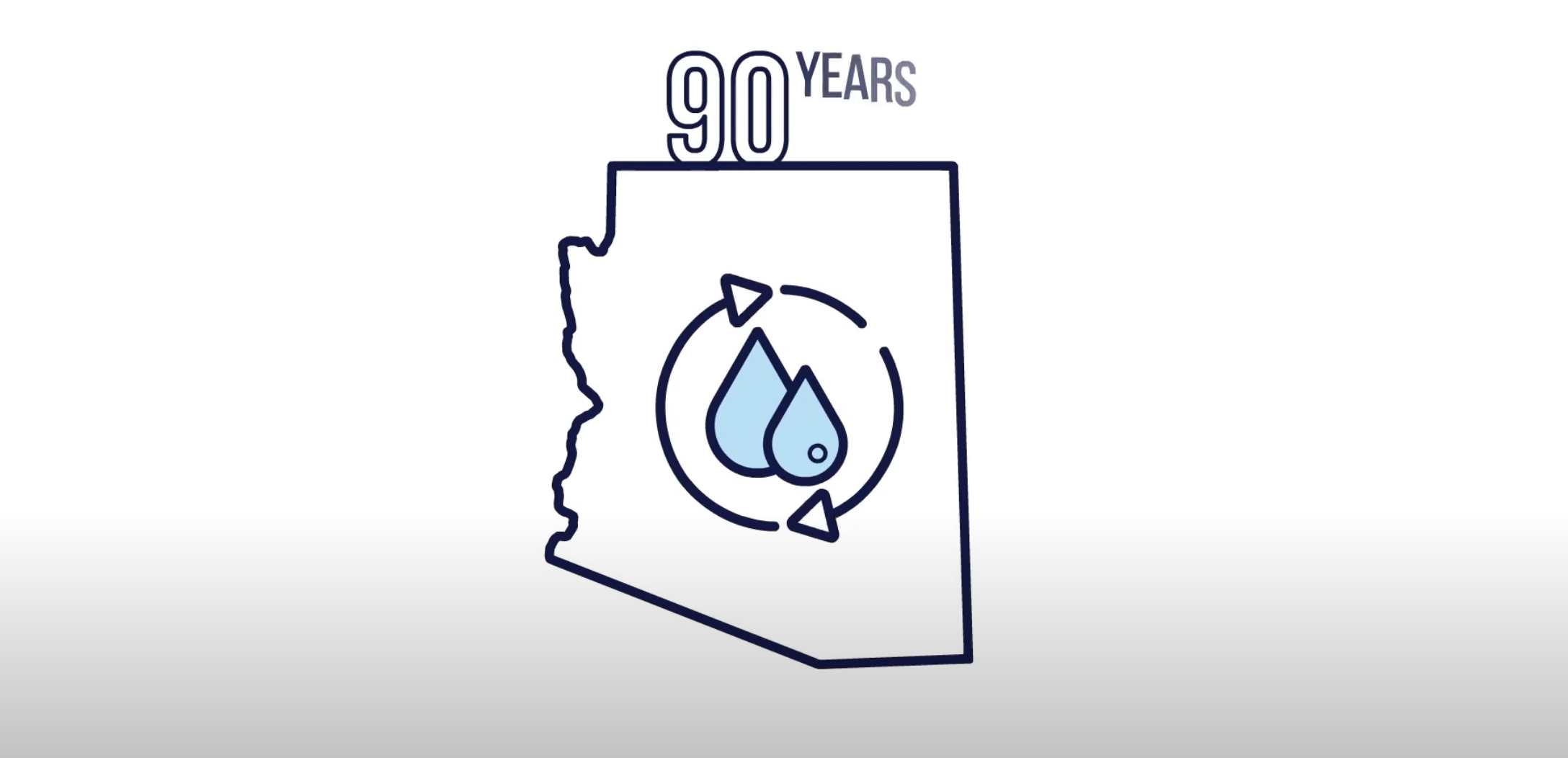WQD | Advanced Water Purification
How it works
AWP leverages a multiple-barrier treatment approach to target pathogens and harmful chemical contaminants. Examples of AWP treatment processes include purifying treated wastewater using combinations of reverse osmosis or ozone and biologically active carbon filtration and other processes, such as advanced oxidation. Each of these treatment steps and others are combined with continuous online monitoring and response plans and then chlorine is added as a final step for disinfection. Combinations of these advanced treatment technologies eliminate chemical contaminants and pathogens like bacteria, viruses and protozoans, ensuring the water is clean and safe for consumption. In some cases, the purified water may be blended with other surface or groundwater sources, seamlessly integrating into a system’s water distribution system.
Frequently Asked Questions (FAQs):
Advanced Water Purification refers to advanced technologies and processes used to treat and purify water, removing impurities and contaminants to make it safe for various uses, such as drinking, irrigation, and industrial applications. These technologies go beyond traditional filtration methods and employ advanced techniques to ensure the highest quality of purified water.
Advanced Water Purification may also be referred to by other terms or names, including:
- Direct Potable Reuse (DPR): Specifically denotes the purification and treatment of reclaimed water to a level suitable for drinking, highlighting its potential as a safe and reliable drinking water source.
- Water Recycling: Emphasizes the practice of treating wastewater or reclaimed water to varying degrees, with the intent of using it for different applications, to reduce the burden on freshwater resources.
- Water Reuse: Emphasizes the concept of reusing water and reducing the need for freshwater and promoting sustainability.
- Advanced Water Treatment: Encompasses the advanced technologies and processes employed to treat and purify water, going beyond conventional methods to achieve higher levels of purification.
- It's important to note that these terms essentially refer to a similar concept of using various technologies for water purification and its reuse, promoting sustainability and ensuring a safe and reliable water supply.
Advanced Water Purification typically involves a multi-step process that combines different technologies. These steps often include filtration and treatment through oxidation, reverse osmosis, and ultraviolet (UV) disinfection. Filtration removes large particles, while reverse osmosis and oxidation treatment remove dissolved solids, impurities, and contaminants. UV disinfection kills microorganisms, if present, ensuring the water is safe to use.
Using Advanced Water Purification technologies offers several benefits, including:
- Improved water quality: Advanced Water Purification processes effectively remove impurities, chemicals, and contaminants, ensuring cleaner and safer water for consumption.
- Enhanced health protection: Advanced purified water helps prevent waterborne diseases and reduces the risk of exposure to harmful contaminants, promoting better health outcomes.
- Sustainable water supply: By purifying and reusing water, advanced purification technologies contribute to water conservation, reducing the strain on freshwater resources and promoting sustainability.
- Increased water availability: Implementing these technologies improves water supply reliability and safeguards against droughts by diversifying water sources, reducing reliance on any single source that may become scarce during dry periods.
- Reduced Environmental Impact: By reducing the demand for freshwater resources, Advanced Water Purification helps to protect natural habitats and reduce the environmental impact of water extraction and transportation.
Biologically active carbon filtration, also known as BAC filtration, is a water treatment process that uses granular activated carbon combined with biological oxidation. This process breaks down harmful chemical contaminants in the water, making it safer and cleaner for us to use.
Using Advanced Water Purification can benefit you in several ways, including:
- Access to clean drinking water: Purified water ensures a safe and reliable source of clean drinking water, promoting your health and well-being.
- Environmental sustainability: Using purified water contributes to water conservation efforts and reduces the strain on freshwater ecosystems.
- Cost savings: Instead of relying solely on bottled water or expensive filtration systems, you can enjoy purified water at a fraction of the cost, primarily if your local water utility provides it.
- Peace of mind: With advanced purification technologies, you can have confidence in the quality and safety of the water you use for drinking, cooking and other everyday activities.
Yes, Advanced Water Purification technologies are designed to meet or exceed stringent safety standards set by the Safe Drinking Water Act. These technologies are thoroughly tested, validated and continuously monitored to ensure the removal of contaminants and the production of high-quality, safe water for consumption and other uses. The technologies involved, such as reverse osmosis UV disinfection and advanced oxidation, are proven and trusted methods for purifying water.
Purified water from Advanced Water Purification provides a reliable and consistent source of high-quality, healthy drinking water that meets or exceeds all federal drinking water standards set under the Safe Drinking Water Act (SDWA). This level of regulation is more stringent than that applied to bottled water, as tap water from public water systems is more strictly regulated by the United States Environmental Protection Agency (EPA) under the SDWA than bottled water is by the Food and Drug Administration (FDA).
Advanced Water Purification technologies effectively remove contaminants, including bacteria, viruses, chemicals, heavy metals and many others to make water safe for drinking. Overall, advanced purification technologies provide a high level of purification removing harmful substances and creating high-quality drinking water that meets or exceeds all state and federal regulatory standards.
Advanced Water Purification technologies play a crucial role in water conservation. By treating and purifying wastewater, these technologies enable the reuse of water that would otherwise be discharged to the environment. By going this extra mile, we can use highly treated wastewater by subjecting it to additional advanced treatment and make it safe to drink. This process reduces the demand on freshwater sources, and promotes a more sustainable water supply.


